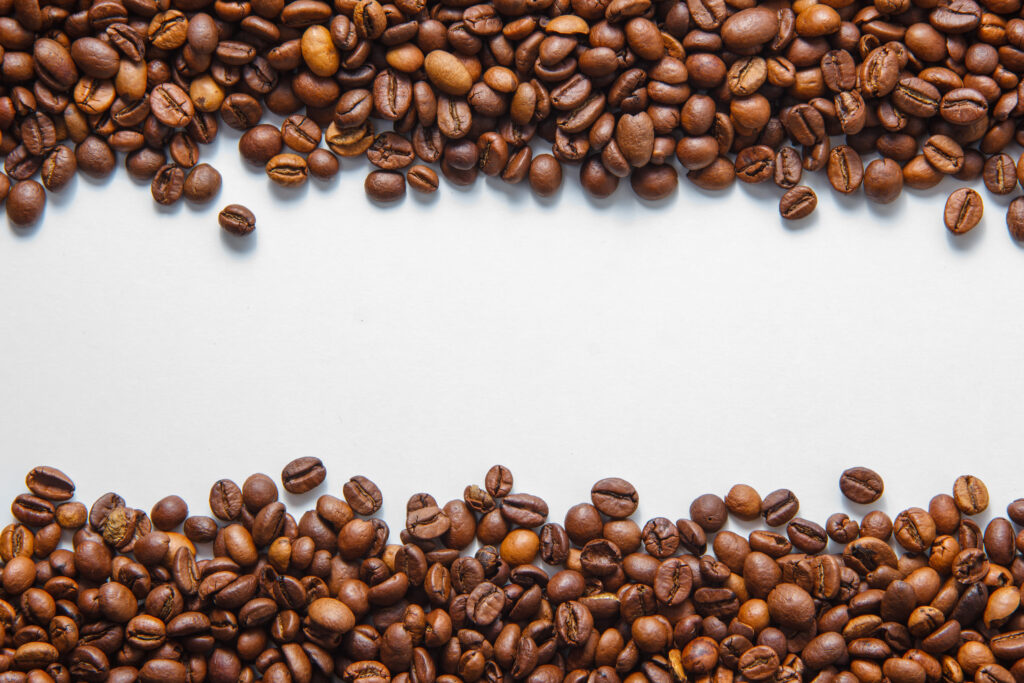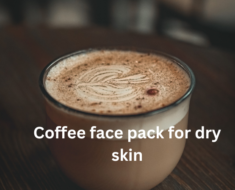Are you a coffee lover? If you are, you’re probably familiar with the wonderful aroma and taste of freshly brewed coffee.
But did you know that those coffee grounds you usually discard have incredible benefits for your skin? Yes, you heard it right!
Coffee grounds can do wonders for your skin, and in this quick read, we’ll explore how.
Thus, coffee grounds can exfoliate, invigorate, and rejuvenate your skin. They’re packed with antioxidants and natural exfoliants, making them an ideal choice for a radiant complexion.
But these are just the tip of the iceberg when it comes to coffee grounds’ skin benefits.
Let’s dive deeper and uncover the secrets to achieving healthier and more vibrant skin with this often-overlooked natural remedy.
So, whether you’re a skincare enthusiast or just looking for an affordable and natural way to pamper your skin, you won’t want to miss out on these fantastic coffee-ground skincare hacks.
We’ll share expert insights and some easy DIY recipes that will leave your skin feeling refreshed and rejuvenated.
Let’s embark on this journey to discover how you can harness the power of coffee grounds for a radiant and glowing skin!
Here coffee for skin brightening
Coffee grounds uses for skin.
Coffee grounds have various benefits for the skin. They can be used as a natural exfoliant to remove dead skin cells, leaving your skin smoother and brighter.

The coarse texture of coffee grounds helps stimulate blood circulation, reducing the appearance of cellulite and promoting a more even skin tone.
The caffeine in coffee can also temporarily tighten and firm the skin, reducing puffiness.
Additionally, coffee grounds have antioxidant properties that can combat free radicals and protect the skin from damage.
When combined with natural oils, they make an effective DIY scrub or mask, leaving your skin rejuvenated and invigorated, making it a great addition to your skincare routine.
Here coconut oil and coffee for skin
Why Coffee Grounds?
Before we delve into the applications, let’s understand why coffee grounds are worth considering in your beauty regimen.
5 Uses of coffee ground for skin
1. Exfoliation: A Deep Cleanse
Coffee grounds are an excellent natural exfoliant. They help remove dead skin cells, dirt, and impurities from the skin’s surface, leaving it refreshed and rejuvenated.
2. Antioxidant Power
Coffee is rich in antioxidants, such as chlorogenic acid, which can protect your skin from the harmful effects of UV rays and pollutants.
3. Reduction of Inflammation
The anti-inflammatory properties of coffee can help soothe skin irritations and reduce redness and puffiness.
Here how to use coffee ground for puffy eyes?
4. Cellulite Reduction
Many beauty products for cellulite contain caffeine as a key ingredient, and coffee grounds can be an affordable and effective way to target cellulite.
5. Reducing the Appearance of Dark Circles
The caffeine in coffee can help constrict blood vessels, which reduces the appearance of dark circles under the eyes.
Here, is drinking coffee good for your skin?
Coffee ground face masks
1. DIY Coffee Ground Face Scrub
One of the easiest and most popular uses for coffee grounds is making a coffee scrub for the face.

- 1 tablespoon of coffee grounds
- 1 tablespoon of coconut oil
- 1 teaspoon of honey
Instructions:
- Mix the coffee grounds, coconut oil, and honey in a bowl.
- Apply the mixture to your face in circular motions, gently exfoliating your skin.
- Leave it on for 10-15 minutes, then rinse with warm water.
- Pat your face dry, and you’ll notice a radiant glow.
2. Coffee Ground Body Scrub
Your face isn’t the only part of your body that can benefit from coffee grounds. A coffee ground body scrub can exfoliate and improve the overall texture of your skin.
Ingredients:
- 1/4 cup of coffee grounds
- 1/4 cup of brown sugar
- 2 tablespoons of coconut oil
Instructions:
- Mix the coffee grounds, brown sugar, and coconut oil in a bowl.
- In the shower, apply the scrub to damp skin and massage in a circular motion.
- Rinse thoroughly, and enjoy silky, smooth skin.
Here, coffee essential oil for skin
3. Coffee Ground Eye Mask
Tired of puffy eyes? Coffee grounds can help with that too!
Ingredients:
- 1/2 teaspoon of coffee grounds
- 1 teaspoon of plain yogurt
Instructions:
- Mix the coffee grounds and yogurt in a small bowl.
- Apply the mixture under your eyes, avoiding direct contact with the eyes.
- Leave it on for about 15 minutes, then rinse with cool water.
4. Coffee Ground Hair Mask
Don’t forget your hair! Coffee grounds can add shine and volume to your locks.
Ingredients:
- 2 tablespoons of coffee grounds
- 1 tablespoon of olive oil
Instructions:
- Mix the coffee grounds and olive oil in a bowl.
- Apply the mixture to your hair, focusing on the scalp.
- Leave it on for 20-30 minutes, then shampoo and rinse thoroughly.
FAQs
Can I use coffee grounds on sensitive skin?
Yes, but be gentle. Coffee grounds can be abrasive, so use a lighter touch when applying to sensitive areas.
How often should I use a coffee ground scrub?
Using a coffee scrub 2-3 times a week is generally recommended for best results.
Can coffee grounds help with acne?
The anti-inflammatory properties of coffee can help with acne, but if you have severe acne, consult a dermatologist.
Is there a specific type of coffee grounds I should use?
Fresh coffee grounds are preferred, as they contain more antioxidants.
5. Can coffee grounds replace my regular skincare products?
Coffee grounds can complement your skincare routine, but they may not entirely replace all your skincare products. It depends on your skin’s specific needs.
So, if you’re looking for a natural, cost-effective way to improve your skin and hair health, consider giving coffee grounds a try. Your skin will thank you, and you’ll enjoy the aroma of coffee while pampering yourself.
Conclusion
Incorporating coffee grounds into your skincare routine can be a game-changer. From exfoliation to reducing cellulite and enhancing hair and skin health, the uses of coffee grounds for skincare are versatile and effective.
Plus, the natural and eco-friendly aspect adds to their charm.
Now, when you finish reading this article, you must be wondering about some practical aspects. Here are some frequently asked questions:






